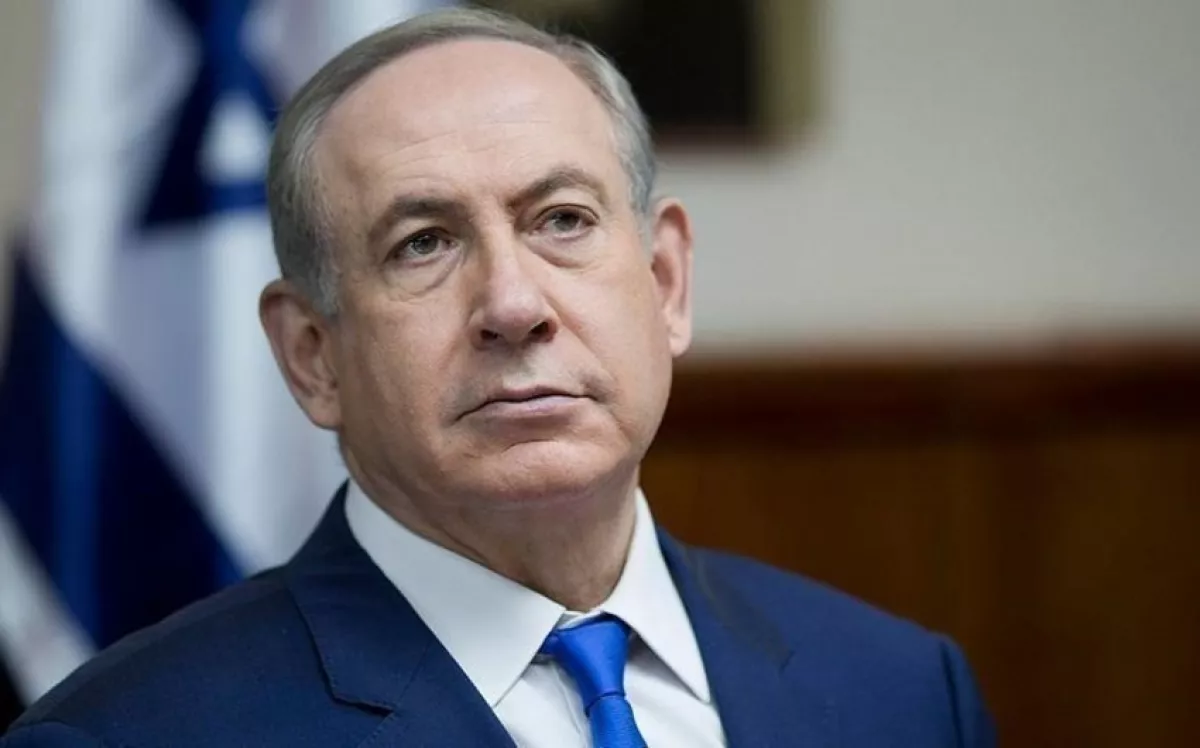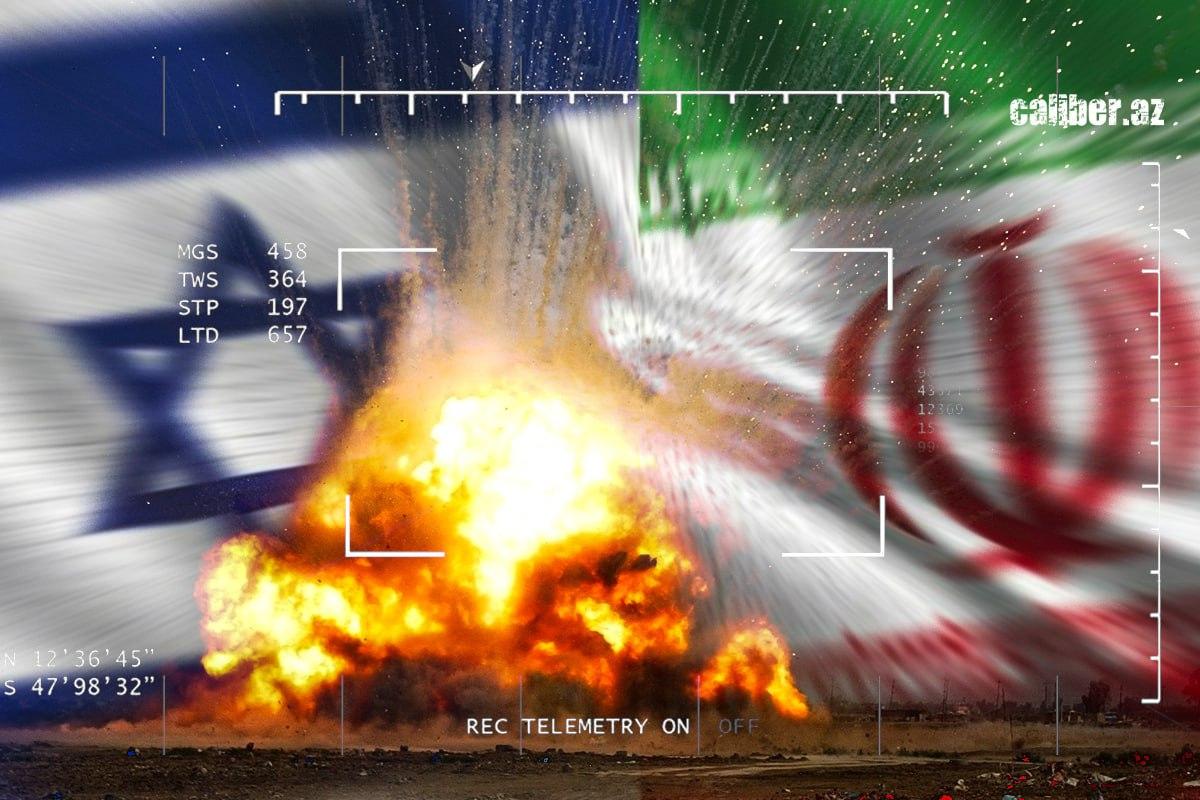Friday the 13th: The day that shook the Middle East Israel-Iran clash
Everyone knows the fable about the boy who cried "Wolf! Wolf! Wolf!" until the grown-ups stopped believing him—and when they finally did, the real beast emerged from the woods. For decades, U.S. and Israeli politicians have routinely declared their intent to strike Iranian infrastructure. Experts would comment, "It's possible, but not inevitable," and within a couple of weeks, talk of bombings would fade—until the next crisis. But this year, Friday the 13th fully lived up to its grim reputation.
On that day, the Israeli Air Force and intelligence services launched a sudden strike on strategic targets inside Iran. The full extent of the damage inflicted on the Iranians will likely become clear later, but there is no doubt it was very significant. The combination of high-tech weaponry and an extensive spy network is reminiscent of recent special operations carried out by Israel against Hezbollah and by Ukrainian intelligence against the Russian Federation.
“We struck Iran’s main facility”
It is currently known that as a result of the Israeli attack, the Chief of General Staff Mohammad Bagheri, the commander of the Islamic Revolutionary Guard Corps Hossein Salami, and the deputy commander of the country’s Armed Forces, General Gholam Ali Rashid, were killed. Additionally, Israel reportedly eliminated leading Iranian nuclear physicists, including the deputy head of the Atomic Energy Organisation, Seyed Amir Hossein Fakhi.
Preliminary data estimates the total number of casualties from the Israeli strike on the Islamic Republic to be close to one hundred killed and three hundred wounded. From the list of those killed, it can be understood that Israel repeated its actions against Hezbollah, when during the 2024 attacks it practically decapitated the organisation’s leadership and paralysed its ability to retaliate against the Israeli state. Furthermore, some media outlets note that Israel succeeded in eliminating all Iranian participants involved in nuclear deal negotiations with the United States.

Prime Minister Benjamin Netanyahu called the operation a preemptive strike: “We struck at the heart of Iran’s nuclear weaponization program. We targeted Iran’s main enrichment facility in Natanz. We targeted Iran’s leading nuclear scientists working on the Iranian bomb. We also struck at the heart of Iran’s ballistic missile program.”
“Israel has prepared a bitter fate for itself”
Given the circumstances, Iran could not ignore the Israeli attack. Passivity, a symbolic response, or “the thousand and first Chinese warning” could have been interpreted as a sign of weakness and would risk Iran’s complete loss of status as a regional power — especially after recent setbacks in Lebanon and Syria.
The President of the Islamic Republic, Masoud Pezeshkian, called Israel’s actions a “foolish act.” Supreme Leader Ayatollah Ali Khamenei, meanwhile, declared that the Iranian military has full freedom to respond: “With this crime, Israel has prepared a bitter and terrible fate for itself, and it will surely receive it.”
It took the Iranians several hours to restore control over their forces, and on the night of June 14, they launched their retaliatory attack on strategic targets within Israeli territory — airbases, facilities linked to Israel’s nuclear programme, and decision-making centres.
Despite Israel having taken all possible security measures throughout the previous day — including closing its diplomatic missions abroad and relocating some aircraft outside the country — and despite the operation of the Iron Dome air defence system, some Iranian missiles reached their targets. Reports emerged of explosions near government buildings in Tel Aviv, as well as casualties and injuries in various parts of Israel.
Balance of forces and positions
Countries around the world have reacted differently to the events. In particular, U.S. President Donald Trump supported Israel’s actions, stating that he had prior knowledge of the planned attack and described the results of the strikes on Iran’s nuclear and military infrastructure as “excellent.” There are reports that American air defence systems in the Persian Gulf region are participating in repelling Iran’s retaliatory attacks on Israel. Other countries have expressed concern over the developments and are closely monitoring the conflict’s progression.
For Israel, the emerging confrontation has opened a new front — the country has already been engaged in active combat operations against Hamas in the Gaza Strip for nearly two years, as well as against the Houthis controlling Yemen. Additionally, significant forces are deployed along the Lebanese border due to the presence of Hezbollah, and Israel maintains control over the Palestinian population in the West Bank. Even with U.S. support, it remains unclear how long Israel can sustain its military and economic resources for prolonged fighting.

Iran, for its part, faces economic problems and has suffered a series of foreign policy failures, meaning that an unsuccessful war could have a destabilising effect on its domestic political situation. It is no coincidence that Israeli Prime Minister Netanyahu, in his address to the Iranian people, referred to the historic Jewish-Persian friendship dating back to the time of Cyrus the Great.
Israel’s allies in the Arab and Muslim world also find themselves in a difficult position. In the context of the war in Gaza, any actions supporting the State of Israel may be negatively perceived by the public and could lead to unrest and internal upheaval.
The situation is particularly complex in Egypt, where a convoy carrying humanitarian aid for Gaza is en route. Egyptian authorities have already stated that they will not allow access to the Gaza border without special permission.
War drives prices up
The economic aspect has not remained untouched either. Amid the escalation, airlines are cancelling flights to the region, businessmen are withdrawing their investments, and oil prices have surged sharply. For example, the price of August Brent crude futures on the London ICE Futures exchange soared by 13.18% to $78.50 at its peak (data as of 13 June 2025, 5:42 MSK – editor’s note).
Taking all factors into account, it can be stated with a high degree of confidence that the war between Israel and Iran is exerting—and will continue to exert—a powerful destabilising influence not only on the Middle East region but on the entire world.








